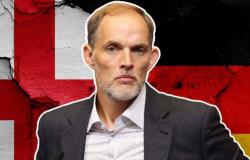Every Quebecer who wishes should have the right to improve their lot in life, without the government preventing them from doing so.
Whether by applying for a new job allowing you to better showcase your know-how, by seeking certain training, or by changing your work schedule by mutual agreement with your employer, you should be able to take the decisions that are necessary to improve your standard of living, if that is something you want to do.
However, in Quebec, the State too often puts obstacles in the way of citizens trying to improve their material conditions.
Relative mobility
This is what we can see by comparing data on mobility between different income deciles from Statistics Canada. This concept, called relative mobility, reflects the possibility that individuals have to move between income strata over the course of their lives.
For a long time, we have observed that the least well-off 10 percent of Quebecers tend to stay in this situation longer than those who are in a similar position in the other large provinces of the country.
If Quebec had relative income mobility similar to that of Alberta, no less than 25,400 more Quebecers could have made the jump between the least well-off 10 percent and the lower middle class or better between 2016 and 2021.
However, these Quebecers are no less brilliant, less smart or less hardworking than their colleagues from Alberta, British Columbia or even Ontario.
The difference comes rather from the way their provincial and municipal governments hinder or encourage their professional development.
We can think here of the question of practice permits for certain professions, the weight of taxation or even the space that the State leaves for the private sector to develop. On all these metrics, Quebec arrives towards the end of the pack, if not simply last, among the Canadian provinces, causing this lower mobility between income strata.
To show the effects, let’s take taxation.
Tax burden
It’s no secret: the Quebec government taxes a lot. Quebecers have the sad title of being the most “hurried” taxpayers on the continent. Quebec’s tax burden amounted to an extraordinary 38.9% of GDP in 2022. For forty years, Quebec has always had a higher tax burden than the rest of Canada, but this gap has widened, reaching now at 6.1 percentage points.
This high level of taxation is due to the fact that Quebec is the province where public spending is the highest. In 2022, the province’s total public spending as a percentage of GDP was almost 10 percentage points higher than Ontario, 14 percentage points higher than British Columbia, and almost double that of Alberta.
The result is that once the tax is over, we have less money left in our pockets to finance our projects – whether it’s funds for buying a house, getting a new diploma or the departure of a young company.
In some cases, this only delays these projects by a few years, and therefore the benefits that would result from them for the individual and the community around them. In others, it ultimately leads to their abandonment.
This is just one example of the many ways in which state intervention – whether well-intentioned or not – ends up becoming a barrier to citizens’ socio-economic advancement.
It goes to show that sometimes the best thing the government could do to help us would be to stop the activities that penalize us. Leaving more of our money in our pockets to pursue our own projects would be a good start.
Gabriel Giguère
Photo provided by the MEI
Gabriel Giguère, senior public policy analyst at the MEI
Vincent Geloso, senior economist at the Economic Institute of the MEI






